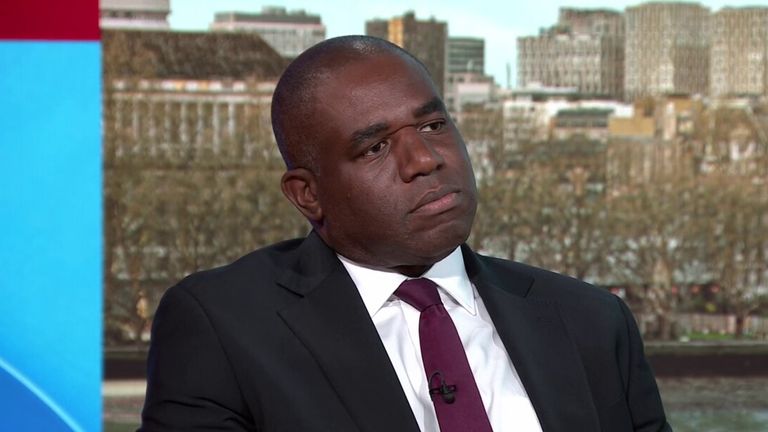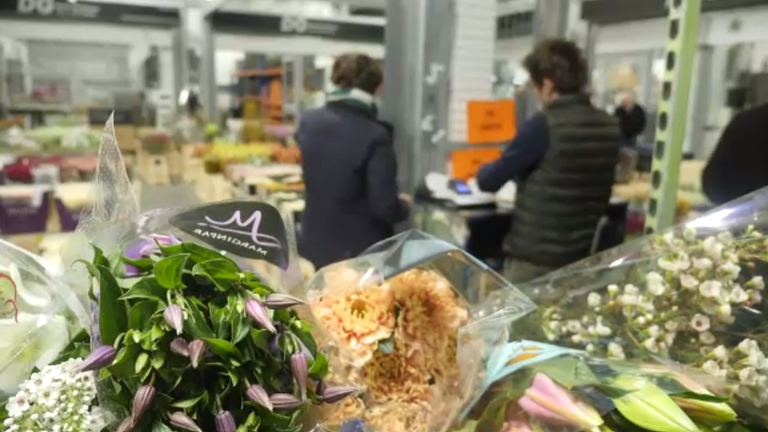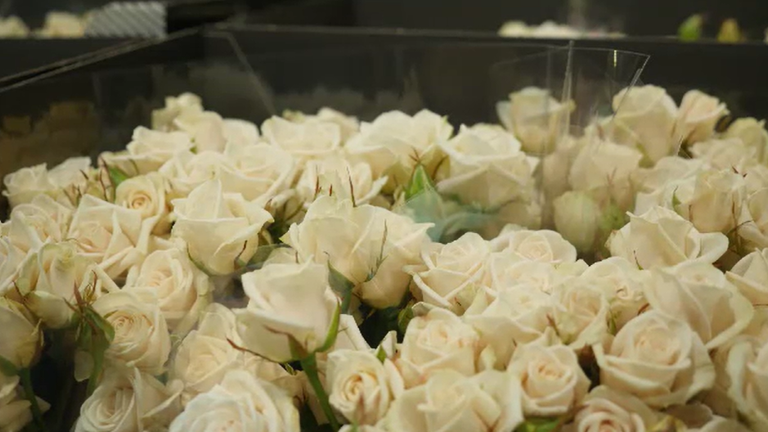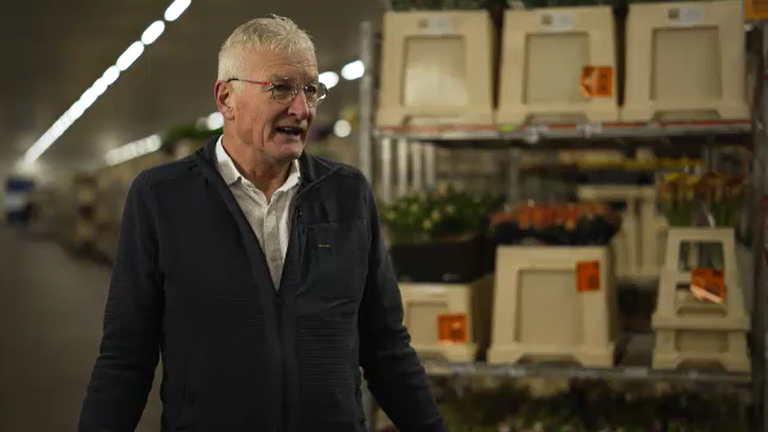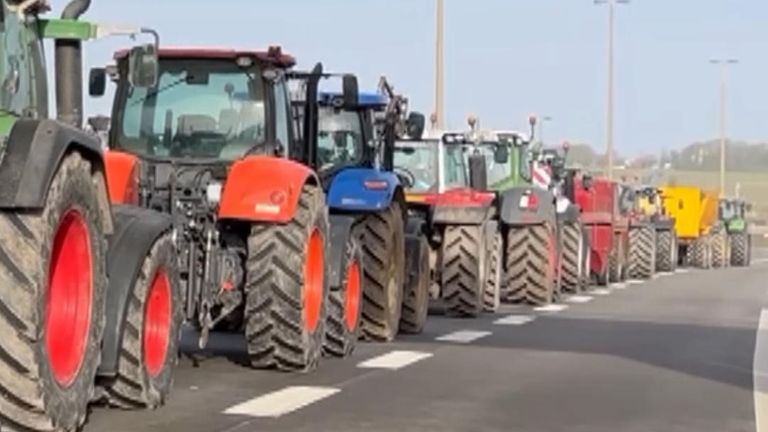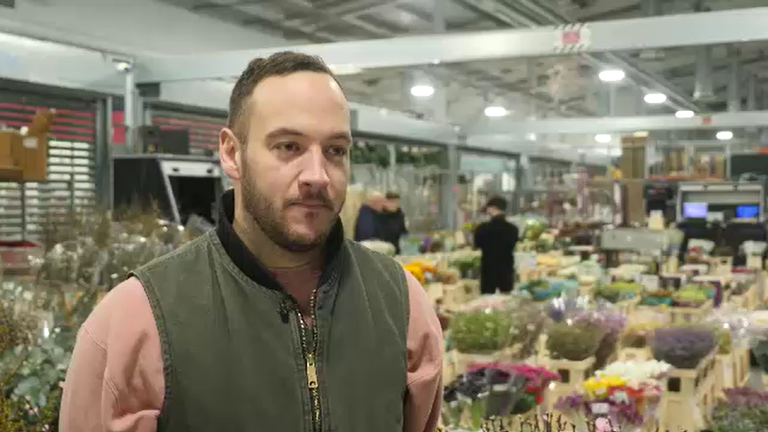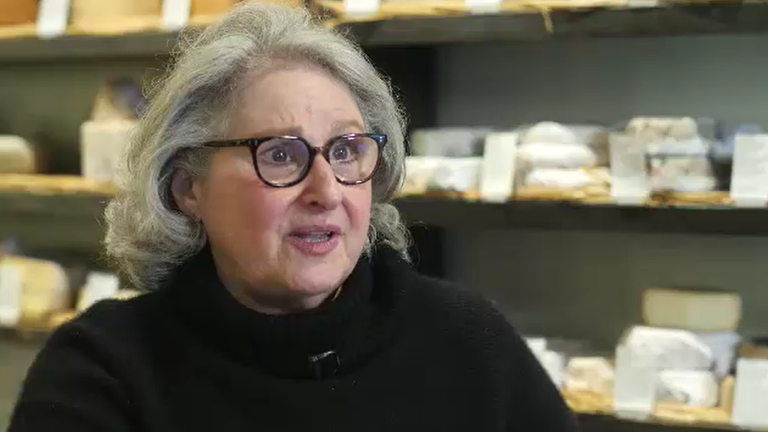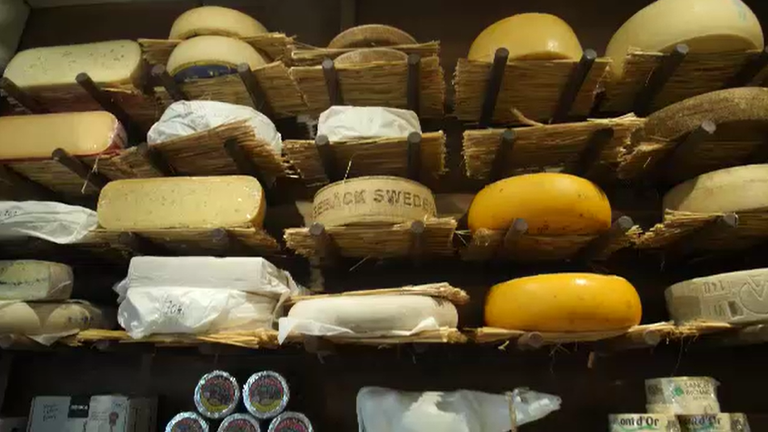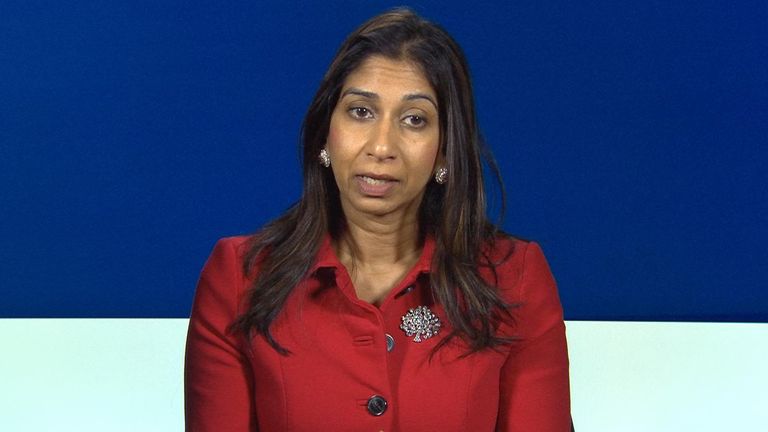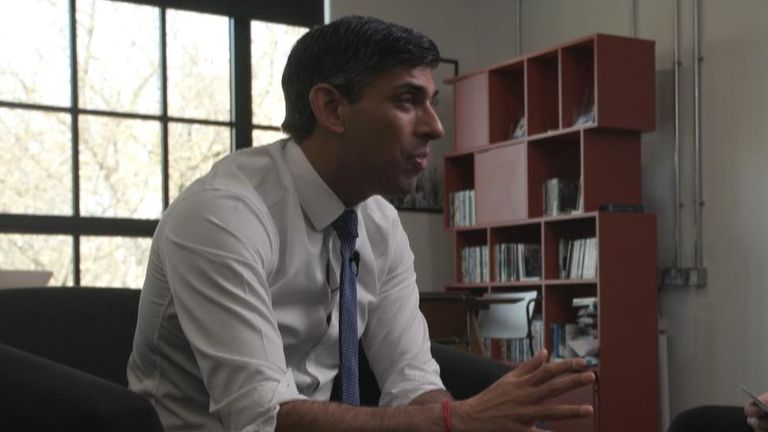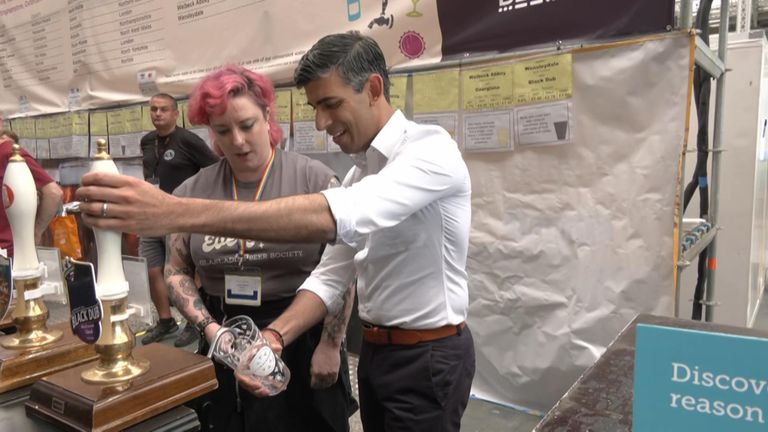Families of teenagers killed in car collisions hope for tougher rules for young drivers | UK News
The sun rising every day is a moment that will always stick in the back of the throat of Harvey’s mum.
Her 17-year-old son was killed in a crash in Gwynedd last November, and now a daily occurrence has become a constant reminder of her loss.
“Harvey in his diary wrote that he was looking forward to the summer, spending more time with his family and friends,” Crystal Owen told Sky News.
“As soon as the sun comes out, you’re just in tears because you think he’s never going to see the sun again. It’s just all the little things that you don’t even think about.”
Harvey was one of four teenagers from the Shrewsbury area who died in a crash in the rural village of Garreg.
The inquest into their deaths has been opened and adjourned pending further inquiries.
Crystal Owen, 39, has launched a petition calling on the UK government to introduce a graduate licensing scheme.
It would mean drivers under the age of 25 would not be able to travel with passengers in the first 12 months after passing their test.
“I know he would still be here if this law was in place, that’s what angers me so much,” Ms Owen told Sky News.
“Before any of this happened with Harvey, I hadn’t really looked into road safety as such because Harvey was not even interested in taking his lessons. It wasn’t on our list of things to worry about at that time.”
‘Majorly overlooked’
Ms Owen said that people should listen to the evidence when it comes to road safety.
“I remember at work, us all talking about this 20mph [default speed limit in Wales] thinking it was over the top. One of my staff actually lives in Wales and she was joking about how long it was going to take to get to work,” she said.
“The evidence speaks for itself, so I think we all just need to learn to trust it and not think we know best.”
But rural roads are “majorly overlooked” in current legislation, according to Ms Owen.
That’s why she’s calling for young drivers to have to take a minimum of 40 hours of lessons before taking their test.
‘Loveliest young man’
Ms Owen said Harvey was the “loveliest young man”.
“He’d never even had a detention, he was just a lovely, lovely lad,” she added.
“He loved his little sisters, absolutely adored them. He was just a real thoughtful, very calm, laid back sort of boy.”
Ms Owen said her family’s lives, and that of thousands of others, had been “devastated” by road traffic collisions.
“In any other way these deaths were occurring in such high numbers, there’d be an absolute outcry, but they just seem to be accepted because it’s a car crash.”
‘They see it as fun’
Ben Rogers was 19 when he was killed in a crash in Swansea in May 2022.
Owain Hammett-George, who was 17 at the time of the crash, was jailed for six years last month for causing death by dangerous driving.
The court heard he had been driving at speeds of up to 78mph on a 30mph stretch of the B4436 in Bishopston.
Both Ben and Kaitlyn Davies, also 19, died instantly and another passenger sustained life-changing injuries.
Ben’s mum Carla King told Sky News she hoped tougher rules for young drivers, including a mandatory black box, would mean they’re more aware of their responsibility.
“They just go out and see it as fun, don’t they? They show off and they speed, inexperienced, they think they’re invincible,” she said.
“I don’t recall anybody ever saying to me you’re responsible for this. You’re driving, you’re responsible for all your passengers, you’re responsible for anybody in the car you hit. It’s a weapon, I don’t think that’s drilled in enough.”
‘Keep Ben’s name alive’
Ben’s sister, Ashleigh Rogers, 27, said he was “just a happy, bubbly person”.
“He was with me throughout everything. All my dark days and all through my happy times, he would be one of the first people I would tell. He was the first person who found out I was having a little boy,” she added.
“He was there a lot and it’s taunting that he won’t be there for the rest of my life, like my wedding and other things like that. But you’ve just got to remember the person that he was when he was here.”
Ben’s loss has been “heartbreaking”, Ms King added.
“I’m actually still in my bed because some days I just can’t get out of bed. It is difficult,” she said.
“Even Easter, not being able to buy his favourite chocolate and have him up for Easter lunch and Christmas lunch and buy him gifts and everything.”
Ben’s mum hopes their calls for change will help to “honour” his name.
“All we can do now is… try to keep Ben’s name alive,” she added.
‘Help them help themselves’
Jo Alkir, 54, has been campaigning on road safety for the last five years.
Her daughter Olivia was 17 when she died in a crash less than a mile from her home in Denbighshire in June 2019.
She was killed after the driver – who had only passed his test the day before – hit an oncoming vehicle while racing with another boy.
A three-part lesson based on Olivia’s story has been taught in schools across North Wales, to make pupils aware of the potential consequences of dangerous driving.
In the years since her daughter’s death, Ms Alkir has taken the campaign both to the Senedd and to Westminster.
She told Sky News a graduated driver’s licence “would have saved Olivia’s life”.
“It’s not controls as in you want to be in control of them, it’s controls to help them help themselves.”
The newly-appointed deputy head girl of her school was described by her mum as “really hard-working”.
“She and I were incredibly close. She was my only child,” Ms Alkir added.
“She was lovely company for me to be with. I loved every single second, every minute I spent with her. She was a joy to be around.”
‘Constant grief’
Ms Alkir said the loss of Olivia had left her feeling “constant grief”.
“It’s the most tiring thing a human could have because you’re just constantly battling to get out of bed and go to work. It’s a battle because all the different emotions that you’re feeling,” she said.
“She was such a bright, beautiful girl… and what her future could have been. She could have been anything.”
While it’s “frustrating” that five years on from Olivia’s death, the government is yet to act, focusing on the campaign has “really helped” Ms Alkir.
“It’s just really important for me to help her be remembered as well, because she was meant to achieve, but she is through her legacy,” she added.
“And I’m sure all the other parents who are in my shoes as well. It’s a very similar feeling I’m sure of not letting it just be in vain, not wasting what happened. Using the opportunity to make some changes.”
‘No plans’
In response to the petition, the Department for Transport said there are “no plans to introduce tougher restrictions on new drivers” but added that it is keeping licensing requirements “under review”.
“Every death on our roads is a tragedy and we continue to work tirelessly to improve road safety,” a DfT spokesperson said.
“We’ve commissioned research designed to help learner and newly qualified drivers improve their skills and safety, while our THINK! campaign is specifically targeted at young drivers.”








